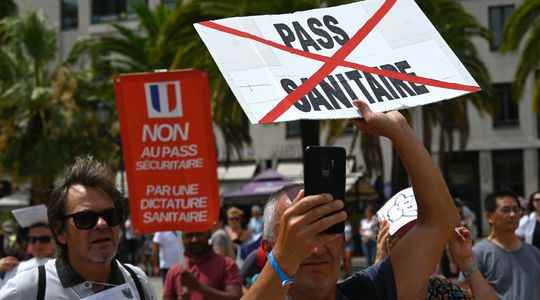The question has been gaining momentum for a few weeks. Are we moving towards the reintegration of non-vaccinated healthcare workers? The compulsory vaccination of these health professionals came into force on September 15, 2021. And the booster dose has also become necessary, since January 30, 2022, so that they can work.
At the end of April 2022, when the Covid-19 epidemic was in decline (which has since been confirmed), Emmanuel Macron mentioned, during a trip to the South-West, the hypothesis of a return of caregivers not -vaccinated: “When we are no longer in the acute phase [NDLR : de l’épidémie]we will do it”. Two weeks later, Olivier Véran, before leaving his post as Minister of Health – for that of Relations with Parliament and Democratic Life – seemed to want to cautiously take the same path by evoking a seizure of the High Authority for Health (HAS).
A lack of staff
Two arguments are regularly put forward, repeated or contested, for this reintegration: the lower circulation of the virus and the lack of staff and means of many emergency services, some of which must close. Unions and associations sounded the alarm before the summer period.
At the Parisianon May 17, Patrick Pelloux, president of the Association of hospital emergency physicians of France and in favor of the obligation to vaccinate caregivers, echoed this: “Today, we need appeasement and all We are living a real disaster in the hospital. At the AP-HP, 15% of the beds are closed for lack of staff. It is not better in the rest of the territory and it will get worse this summer. entire services will close. The non-reintegration of caregivers is the ultimate negation of this situation […]. In this context, we cannot do without the 15,000 people who have been suspended, even if they made a mistake.” The emergency doctor assures us that we must “pass the sponge”.
A position that does not share Mathias Wargon, emergency doctor and head of emergencies at the Delafontaine hospital in Saint-Denis (Seine-Saint-Denis). “We are going to say to those who did not want to be vaccinated, to those who do not believe in contemporary medicine, those who believe that vaccines kill, those who read the conspiratorial press: come back to the hospital? say what ?”, he wondered about France info. “They inject products that they themselves wouldn’t inject? It’s very weird all the same.”
“Accompany the return”
The emergency physician also questioned the number of caregivers in this situation. Since the fall and the 15,000 suspended put forward by the Ministry of Health, no official figure has been communicated or updated, while some caregivers have since been vaccinated and have therefore been able to resume their activity. Mathias Wargon estimates that there would only be “two or three [non-vaccinés], in my department. That’s not going to make the difference.”
“No quantity is negligible today”, contradicts with L’Express Jean-François Cibien, president of the inter-union Action Practitioner Hospital. “In a just-in-time team, when you remove one or two people, it’s very complicated… We need everyone to ensure the quality and safety of care.” If he hears the government’s decision to make vaccination compulsory for medical personnel, the emergency doctor is in favor of the reintegration of the non-vaccinated. “In addition to the shortage of caregivers, it is a shame to deprive ourselves of skills and people who have sometimes given 20 or 25 years to their profession,” he admits.
While “almost everyone, vaccinated or not, has had the virus”, Jean-François Cibien would like to “restore rationality” and “accompany the return” of these personnel to the services: “they are not pariahs”, he defends. And puts forward the idea of a financial gesture from the government towards them. “Punishment [de les suspendre] is heavy with consequences”, continues the president of Action Practitioner Hospital.
However, the vaccination obligation, still in force for caregivers, is enshrined in the law dated August 5, 2021. Changing it could take time: no parliamentary session takes place until the legislative elections (June 12 and 19) .
